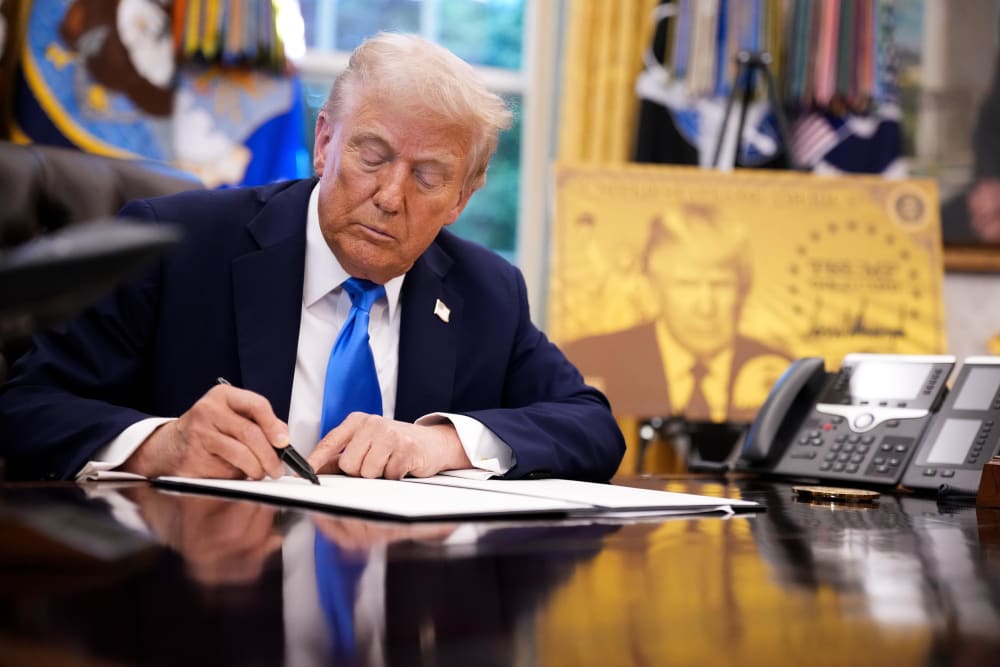The rollout of President Donald Trump’s plan to charge highly skilled foreign workers $100,000 for visas was not smooth.
After Trump announced the new fee for H-1B visas on Friday, the president’s press office spent the weekend issuing clarification after clarification after clarification to the president’s proclamation.
The White House blamed “corporate lawyers and others” for creating chaos. But employers and leaders in U.S. allies were among those confused and frustrated, warning that the plan could drive highly skilled workers to other countries.
The administration is expected to face lawsuits challenging the change, according to lawyers and former government officials who spoke with MSNBC.
“A president can’t condition entry on a gigantic fee using this authority. It’s never been done, it’s completely without precedent,” said Doug Rand, who was senior adviser for U.S. Citizenship and Immigration Services in the Biden administration.
The announcement caused some companies and lawyers to urge visa holders currently outside the U.S. to immediately return.
The announcement caused some companies and lawyers to urge visa holders currently outside the U.S. to immediately return, prompting the White House to clarify via posts on the social media platform X that the proclamation did not affect people already holding an H-1B visa.
“Those who already hold H-1B visas and are currently outside of the country right now will NOT be charged $100,000 to re-enter,” White House press secretary Karoline Leavitt posted on Saturday. “H-1B visa holders can leave and re-enter the country to the same extent as they normally would.”
But the questions didn’t stop there. The White House further had to clarify that the new fee “is NOT an annual fee,” but a one-time fee that applies to new petitions.
Still, questions remained Monday. The White House said the new fee — roughly 50 times more than the current costs, which range from $2,000 to $5,000 per application — would apply only to new petitions in time for the lottery next spring.
In 2004, Congress raised the cap on the number of H-1B visa holders that can be approved each year to 85,000 through the lottery system. But employers such as universities and most non-profit hospitals do not have to go through the lottery system to sponsor H-1B visa applicants. A White House official told MSNBC that any new petition filed after the effective date of Sept. 21, is required to pay the fee — meaning universities and non-profit institutions that are not subject to the lottery are not exempt from the the $100,000 charge.
It’s unclear how a payment like that would be processed as guidance is still being worked out by the Department of Homeland Security.

“I’m regularly getting pinged by other CEOs and job creators who are asking if they’re able to continue to afford their employees,” said Xiao Wang, CEO of Boundless Immigration, which advises immigrants and companies on how to navigate the country’s immigration system. “And so when you only see snippets of headlines, you really have a lot of concern around how you operate your workforce moving forward.”
The proclamation signed by Trump on Friday states that the secretary of Homeland Security has the “discretion” to provide a fee exemption for certain individuals, companies or a specific industry applying for H-1B visas. That raised questions from lawyers and some business owners about whether the White House would play favorites with certain companies.
The announcement was met with sharp criticism and warnings from India, the country with the highest number of H-1B visa holders in the U.S., many coming to fill jobs in labs, IT, tech start-ups and hospitals.












